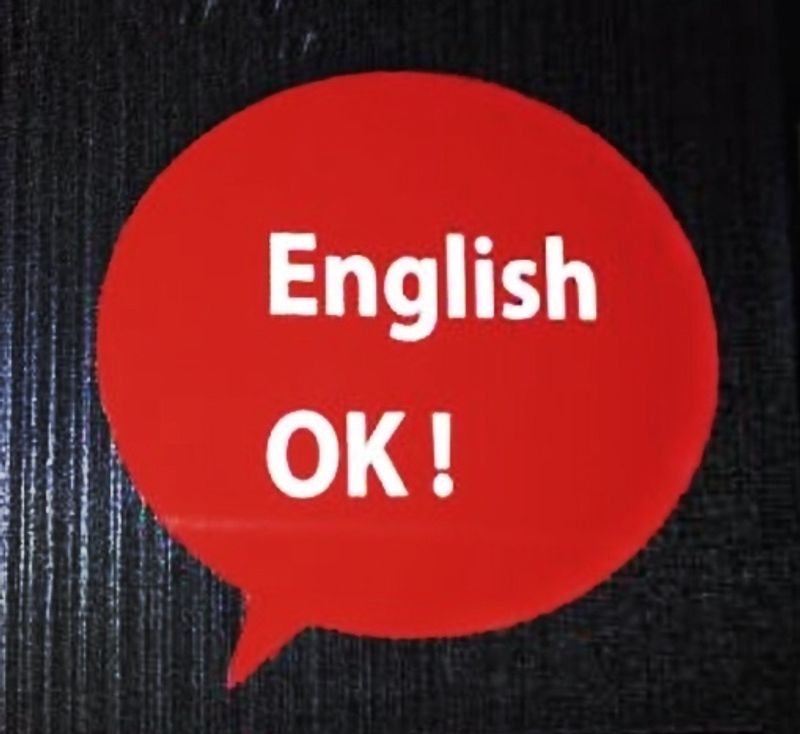Jan 5, 2018
10 Do's & Don't's for English Communication in Japan
Traveling in Japan can seem daunting for those who don't speak the language, but it is possible to survive on your travels using basic English. After all, English is a compulsory subject for all students in Japan, so a number of locals you encounter will have at least a modicum of understanding--provided you communicate the right way.

To that end, allow me to offer a few dos and don'ts for using English in Japan that may help you along your journeys:
Do:
1. Speak slowly & enunciate
English can be difficult enough to understand among native speakers if someone is speaking quickly or mumbling, so be sure to take your time and communicate clearly. This does not mean that you have to speak like you're in slow motion, but just take your time.
2. Ask one question at a time
If someone has limited language ability, it can be exceedingly difficult to comprehend and to respond to a string of multiple questions received at once. The best thing to do is ask one question at a time. Sure, it can feel a bit staccato and unnatural at times, but it's much more effective at getting the job done!
3. Use hand gestures/visual aids
Communication is not just about language, so feel free to use hand gestures or visual aids like maps or pictures. They can help fill any gaps left in communication.
4. Confirm what was said
There's nothing wrong with repeated what someone told you to ensure that it was communicated correctly, so go ahead and walk back through those directions to the station or the cost of a certain item with the person with whom you're conversing. A few seconds to confirm a message can save a lot of heartache in the long run.
5. Keep it simple and direct
Some people like to show politeness through words. Heck, the Japanese keigo/kenjōgo are perfect examples of how making words longer and adding honorifics are used in daily communication. Still, if you're communicating with someone who has limited English language ability, keep it simple and direct. Show politeness through a friendly smile and a bow.
Don't
6. Don't speak louder
You'd be surprised at how many people think that if they raise their voices, folks might better understand what they're trying to say. There's no need. Use the normal volume, and if the message is still not coming across, think about the other nine do's & don't's listed here.
7. Don't use slang or idiomatic expressions
You can't expect folks here to be up on all of the slang terms or idioms that English speakers back home use. Stick to textbook English.
8. Don't use sarcasm
While sarcasm is a prevalent part of communication in some countries (my wife's home country of Australia, for example), it is not part of Japanese language or culture. If you use sarcasm, folks here will generally fail to understand your meaning.
9. Don't use acronyms
You can't assume that certain acronyms that are common back home will be the same here in Japan. Avoiding acronyms may lengthen your conversation a bit, but it will also prevent unnecessary misunderstandings or additional explanations as to what the acronym means.
10. Don't be afraid to make mistakes
Too many people who travel in a foreign country are afraid of making a mistake in communication, so they opt not to try. They end up missing out on a whole lot. If you're traveling here and you try speaking English to someone, the worst thing that will happen is that they will bow and give you a little hand wave to indicate that they can't speak English back to you. If they engage, they will do their best to give you the info you need, and while it might be a little cumbersome, I guarantee you'll get there in the end as long as you don't fret too much about it!
Hitting the books once again as a Ph.D. student in Niigata Prefecture. Although I've lived in Japan many years, life as a student in this country is a first.
Blessed Dad. Lucky Husband. Happy Gaijin (most of the time).



1 Comment
KamaT
on Jan 5
Oh my word! Totally on board with the point about "sarcasm". It really does fall on deaf ears over here. It took me a while to learn, or break the habit would be a better way of putting it. It's difficult one though, as being from the U.K. it's pretty much a default setting and hard to crack jokes without it!